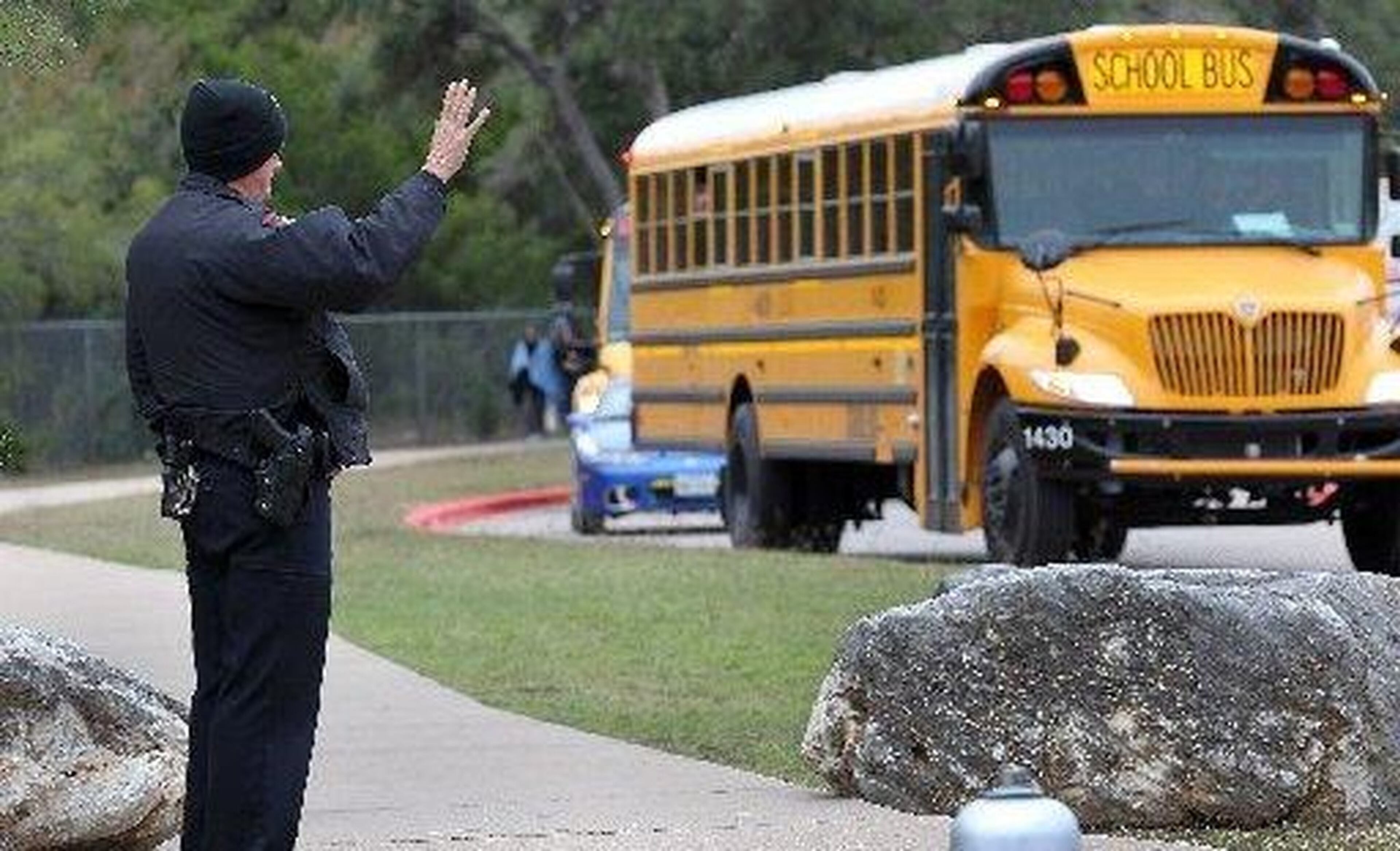Torpy at Large: Racing toward a united state of speed cameras?

Consider a world in which you’re driving home from work on I-85, keeping up with traffic — not doing anything crazy, mind you — and then you arrive home only to get a text saying you owe the government a hundred bucks (or more) for a brand new speeding ticket.
Or maybe you got more than one ticket because you passed speed enforcement cameras in several different jurisdictions.
And perhaps you drove through a town like Brookhaven, where the digital sentries that are mounted on utility poles monitored your license plate and sent information about you and your route to the digital cloud.
I’m not describing a Rod Serling teleplay about some dystopian future. No, I’m describing what is currently possible and very well could be our future. In fact, it is already reality in some states across the nation.
Last year, the Georgia Legislature passed a law that would allow jurisdictions to erect speed enforcement cameras in school zones. But I can’t help but wonder whether that’s just the beginning.

The proposal won the day because we all want our children to be safe. Also, it didn't hurt that the effort was being pushed by lobbyist Matt Ralston, who represents a company selling the camera systems to local governments. Lobbyist Matt's dad is House Speaker David Ralston, who allowed the bill to be approved past the midnight deadline of the legislative session's final night.
The bill had an unstoppable twofer in its favor — it was “for the kids” (a strong, sentimental favorite) and it carried real political clout (an even better predictor of success).
So far, according to the Georgia Department of Transportation, only one jurisdiction — in Wheeler County in southeast Georgia — has been permitted to run the cameras. But another half-dozen jurisdictions are working through the pipeline and more are sure to ask for approval before schools come back next month.
The effort has a popular selling point: It costs nothing. At least that’s what police chiefs gush when they approach their city councils and county commissions. The formula seems to be 35 percent of the take goes to the for-profit tech company and 65 percent goes to the local jurisdiction, where it must be spent on public safety measures.
And the cops don’t have to do anything. They don’t have to run a radar gun or listen to civilians gripe about speed traps. They just watch the checks roll in.
It’s a win-win … unless you’re getting the ticket.
In the past couple of months, according to reports, the Henry County Commission voted to get speed cameras, and cities such as Duluth and Morrow are working toward them.
They sound great, right? So why are lots of folks against them?
“Well, people don’t like to get tickets,” said Russ Rader, spokesman for the Insurance Institute for Highway Safety.
Speed is a factor in many devastating accidents, he said, and governments are increasingly looking for ways to make roads more safe.
“Speed cameras are an effective way to enforce speed limits,” Rader said. “The goal is that over time, the number of tickets drop because driver behavior changes.”
The internet is full of position papers and studies, such as those by the Governors Highway Safety Association (GHSA), advocating the effectiveness of such cameras in getting traffic to slow down.
"Speeding remains a publicly-accepted driving behavior that is reinforced among motorists, policymakers and transportation stakeholders," said a GHSA report published this year.
This brings to mind the old Newt Gingrich bit in which he said Germans resist speed limits on the autobahn because they don't want to obey the law and slow down. Americans, on the other hand, welcome speed limits because they want to know what they're getting away with. Speed limits are a "benchmark opportunity," he said.
Some critics, including Greg Mauz, a researcher and activist with the Best Highway Safety Practices Institute, said speed cameras “interrupt the uniform flow of traffic.”
Eh?
“Picture it like a river that is flowing, and then you drop a tree in it,” he said. If traffic flow is slowed, he explained, it will cause problems such as tailgating and lane surfing.
And without a doubt, there will be mission creep. Getting laws passed for cameras in school zones is just the foot in the door, he said. Next, it will be road construction zones, and then “dangerous” roadways, and then …

New York City, according to a recent New York Times article, is expanding its network to more than 2,000 speed cameras sprinkled all through the metropolis, not just school zones.
You’d think this would cause people to slow down. Nope. The Washington Post noted that more than 1 million speed camera tickets were issued in 2017 in the District of Columbia, amounting to more than $100 million in fines.
And they are getting sneakier, according to the Post story: “New technology is making the devices more difficult to spot. The District has been deploying a new generation of cameras equipped with ‘three-dimensional tracking radar’ that are smaller and installed high on poles.”
Tell me that’s not just a tax collection scheme.
When Georgia was considering the camera law, only about two dozen House members voted against it. But they were from both parties.
As he voted “no,” then-Rep. Howard Mosby, a Democrat, wondered, “Is this just another way to create revenue?”
“Without the right kind of bumper guards, you’re subject to local jurisdictions doing what they are going to do,” he said.
Yeah, you’d think bumper guards would be established to keep localities from squeezing you. You’d think, right?


